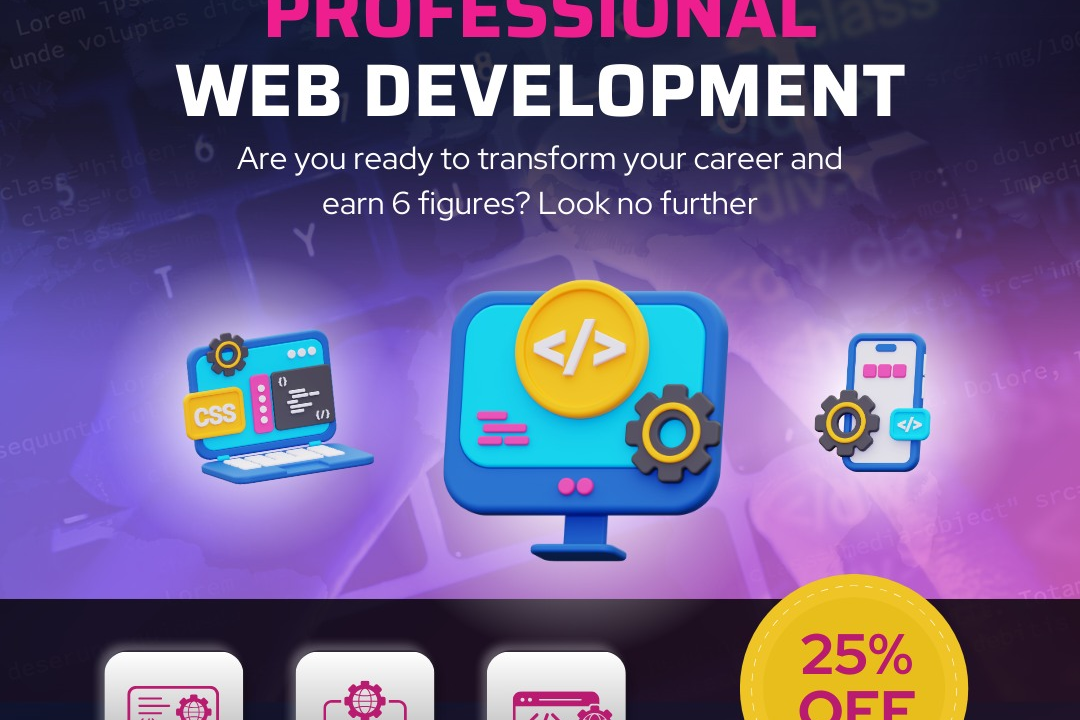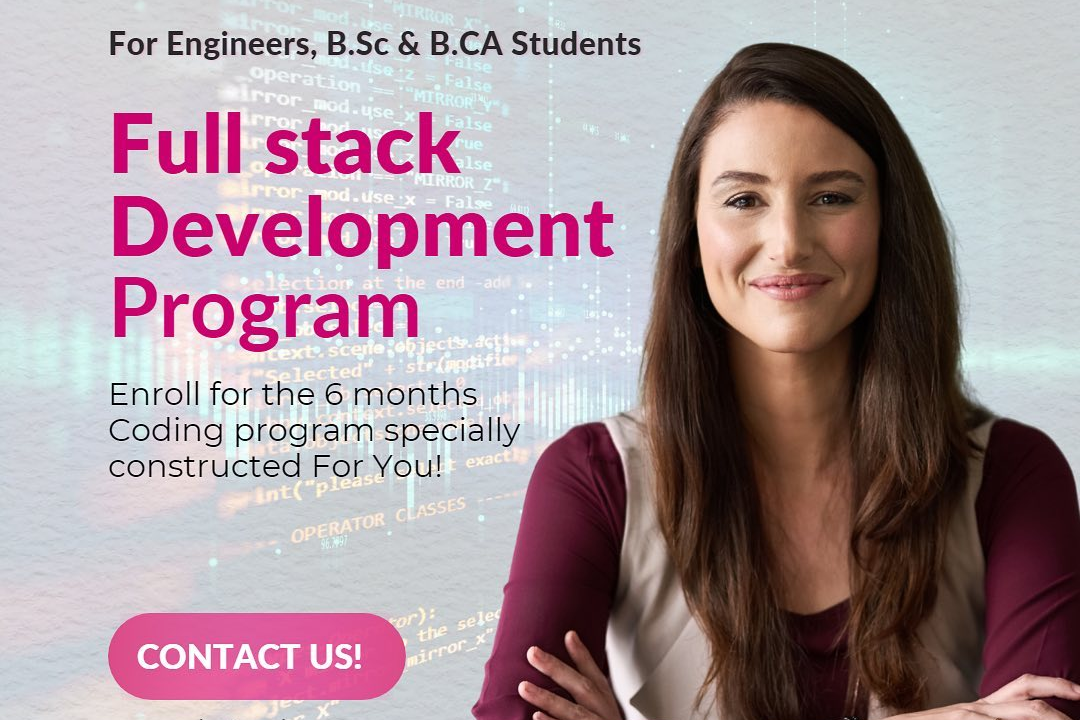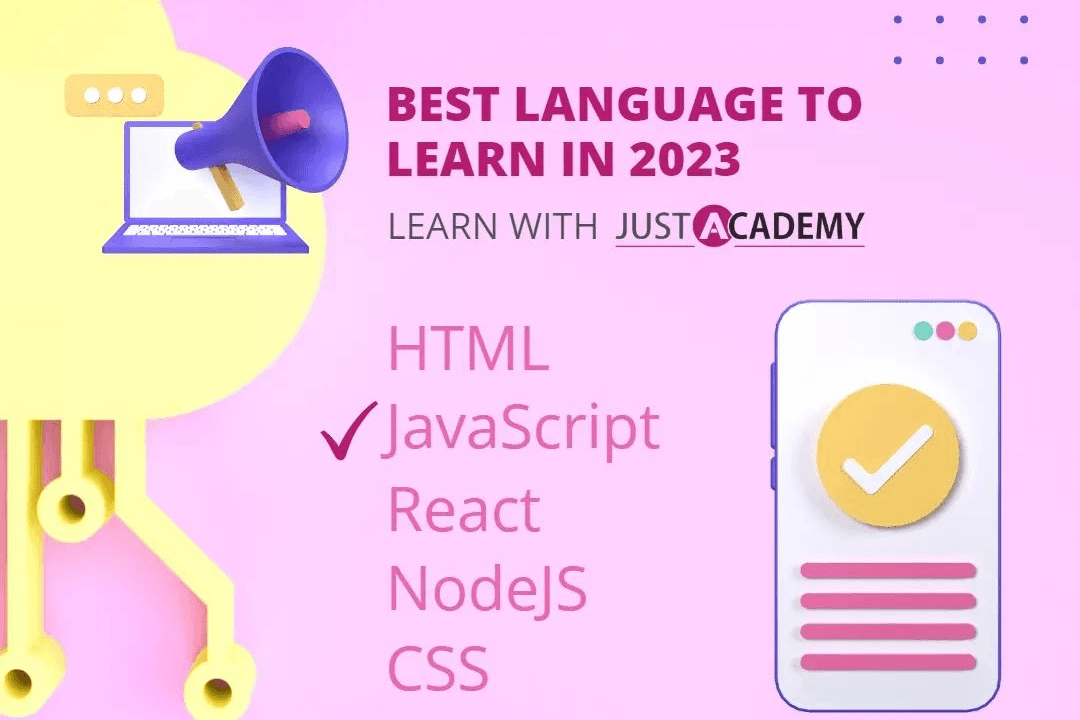Laravel Javatpoint Interview
Essential Laravel Interview Questions and Answers from Javatpoint
Laravel Javatpoint Interview
The Laravel Javatpoint interview is an invaluable resource for candidates looking to secure a position in web development, particularly those focusing on PHP frameworks. Laravel, known for its elegant syntax and robust features, is widely used in the industry, making familiarity with its concepts crucial for aspiring developers. The interview questions typically cover a range of topics, including routing, middleware, database migrations, and Eloquent ORM, which not only assess a candidate’s technical knowledge but also their problem-solving skills in practical scenarios. Engaging with these interview materials helps candidates prepare effectively, boosting their confidence and enhancing their chances of success in landing their desired roles in a competitive job market.
To Download Our Brochure: https://www.justacademy.co/download-brochure-for-free
Message us for more information: +91 9987184296
1 - What is Laravel?
Laravel is a PHP framework that provides a clean and elegant syntax to create web applications following the MVC architecture.
2) What are the main features of Laravel?
Some of the key features include Eloquent ORM, routing, middleware, Blade templating engine, authentication, and easy database migrations.
3) Explain Laravel routing.
Routing in Laravel allows developers to define application routes with a straightforward syntax, mapping URLs to specific controller actions.
4) What is Eloquent ORM?
Eloquent ORM is Laravel's built in Object Relational Mapping tool that enables developers to interact with the database using an Active Record implementation.
5) What are Middleware in Laravel?
Middleware provides a convenient mechanism for filtering HTTP requests entering the application, allowing for tasks like authentication and logging.
6) How does Laravel handle database migrations?
Laravel migrations allow developers to define and share the application’s database schema, making it easy to version control and manage changes.
7) What is Blade templating engine?
Blade is Laravel's powerful templating engine that allows developers to work with templates and provides features like template inheritance and sections.
8) What is Dependency Injection in Laravel?
Dependency Injection is a design pattern that Laravel uses to manage class dependencies, making the code cleaner and easier to test.
9) Explain Laravel’s service providers.
Service providers are the central place of all Laravel application bootstrapping, responsible for binding services into the service container.
10) What is a Laravel Facade?
Facades provide a static interface to classes that are available in the application’s service container, simplifying the access to complex services.
11 - Can you explain the Laravel event system?
Laravel's event system allows developers to create observers for specific events and define listeners to handle those events, promoting loose coupling.
12) What is the purpose of the .env file in Laravel?
The .env file stores environment variables that configure the application, such as database credentials and API keys, keeping sensitive information secure.
13) How do you handle sessions in Laravel?
Laravel provides a unified API for session management, utilizing various storage mechanisms, such as file, cookie, database, and more.
14) What is the purpose of Route Model Binding?
Route Model Binding allows for automatically injecting model instances into route parameters, simplifying the retrieval of data associated with the request.
15) Explain how to create a RESTful resource controller in Laravel.
To create a RESTful resource controller, use the Artisan command `php artisan make:controller` along with the ` resource` flag, which generates methods for handling the standard CRUD operations.
These points cover essential topics and concepts that are likely to be addressed in a Laravel based interview, providing candidates with a solid foundation for their preparation.
Here are additional points covering more advanced concepts and best practices related to Laravel that can be valuable for interview preparation:
16) What is the Laravel Artisan command line tool?
Artisan is Laravel's command line interface that provides various helpful commands for application development, such as creating controllers, running migrations, and generating models.
17) Describe Laravel’s task scheduling feature.
Laravel's task scheduling system allows developers to define scheduled tasks in the application using a fluent interface, which can be executed at specified intervals without requiring a separate cron entry.
18) What are Laravel Policies?
Policies are classes that organize authorization logic around a particular model or resource, allowing developers to manage user permissions in a clean and systematic way.
19) Explain the concept of Queues in Laravel.
Queuing in Laravel allows tasks to be deferred until later, enabling the application to handle heavy processing jobs asynchronously, improving performance and user experience.
20) What are Laravel Events and Listeners?
Events provide a simple observer implementation, allowing you to subscribe and listen for events that occur in your application, while listeners are responsible for handling those events.
21 - How do you implement validation in Laravel?
Laravel provides a powerful validation mechanism that allows for the validation of incoming data using built in rules, custom rules, and even form requests, ensuring data integrity.
22) What is the purpose of Laravel Collections?
Collections in Laravel are wrapper classes around arrays that provide a fluent and convenient way to work with data, offering various methods for manipulation and transformation.
23) Explain the use of Environment Configuration in Laravel.
Environment configuration allows developers to set environment specific variables (like production, development) in the `.env` file, ensuring the application behaves correctly in different environments.
24) How does Laravel handle file uploads?
Laravel provides a simple API for file uploads, allowing developers to store files in various file systems (local, FTP, S3, etc.) and perform validation on the uploaded files.
25) What is Resource Routing in Laravel?
Resource routing is a method to define RESTful routes in Laravel easily, using a single line of code to create routes for standard CRUD operations (index, create, store, show, edit, update, destroy).
26) Discuss the Laravel Mix.
Laravel Mix provides a clean and fluent API for defining Webpack build steps for your application’s assets, simplifying the compilation of CSS and JavaScript files.
27) What is Laravel Sanctum?
Laravel Sanctum is a package that provides a simple authentication system for SPAs (Single Page Applications) and simple token based APIs, allowing for easy implementation of user authentication.
28) Explain the use of Laravel Telescope.
Telescope is an elegant debug assistant for Laravel applications, providing insight into requests, exceptions, database queries, and more, helping developers debug their applications efficiently.
29) What are Laravel Events and their Importance?
Events allow decoupling of various parts of the application by providing an efficient way to listen and respond to events occurring within the application, promoting better maintainability and clean architecture.
30) Describe the use of Custom Commands in Laravel.
Custom commands can be created in Laravel using Artisan to encapsulate repetitive tasks or complex operations, enhancing productivity and maintainability of the codebase.
31 - What are Laravel Jobs?
Laravel jobs represent a queued task that can be executed asynchronously. It simplifies background processing and allows for the offloading of tasks from the user’s request lifecycle.
32) What is Laravel Valet?
Laravel Valet is an open source development environment for macOS that configures your Mac to host PHP applications using Nginx, making it easy to work with Laravel applications locally.
33) Explain Laravel’s localization features.
Localization in Laravel allows for the support of multiple languages by providing a way to manage language files, enabling applications to serve content tailored to different language preferences.
34) What are Traits in Laravel?
Traits in Laravel are a mechanism for code reuse that allows developers to create methods that can be shared across multiple classes without providing a full inheritance.
35) How to Implement CORS in a Laravel Application?
CORS (Cross Origin Resource Sharing) can be implemented in Laravel by using middleware or packages like `barryvdh/laravel cors`, allowing your application to handle requests from different origins securely.
These points cover a wide range of Laravel concepts, ensuring a well rounded preparation for anyone looking to master this framework.
Course Overview
The “Laravel Javatpoint Interview” course is designed for aspiring web developers and software engineers seeking to excel in Laravel framework interviews. This comprehensive program covers essential topics such as routing, middleware, requests, blade templating, Eloquent ORM, and more, equipping participants with in-depth knowledge and practical skills. Real-time projects enhance the learning experience, ensuring candidates are well-prepared to tackle common interview questions and demonstrate their expertise confidently. By the end of the course, learners will be adept in Laravel's advanced features and best practices, making them highly competitive in the job market.
Course Description
The “Laravel Javatpoint Interview” course is meticulously crafted for individuals looking to master the Laravel framework and enhance their interview readiness. This course delves into key concepts such as routing, controller methodologies, middleware, Eloquent ORM, and Blade templating, all essential for building robust web applications. Participants will engage in real-time projects that simulate practical scenarios, equipping them with hands-on experience and the confidence to tackle challenging interview questions. By the end of the course, learners will possess a solid understanding of Laravel's intricacies and best practices, positioning them favorably in the competitive job market for web developers.
Key Features
1 - Comprehensive Tool Coverage: Provides hands-on training with a range of industry-standard testing tools, including Selenium, JIRA, LoadRunner, and TestRail.
2) Practical Exercises: Features real-world exercises and case studies to apply tools in various testing scenarios.
3) Interactive Learning: Includes interactive sessions with industry experts for personalized feedback and guidance.
4) Detailed Tutorials: Offers extensive tutorials and documentation on tool functionalities and best practices.
5) Advanced Techniques: Covers both fundamental and advanced techniques for using testing tools effectively.
6) Data Visualization: Integrates tools for visualizing test metrics and results, enhancing data interpretation and decision-making.
7) Tool Integration: Teaches how to integrate testing tools into the software development lifecycle for streamlined workflows.
8) Project-Based Learning: Focuses on project-based learning to build practical skills and create a portfolio of completed tasks.
9) Career Support: Provides resources and support for applying learned skills to real-world job scenarios, including resume building and interview preparation.
10) Up-to-Date Content: Ensures that course materials reflect the latest industry standards and tool updates.
Benefits of taking our course
Functional Tools
1 - Laracasts
Laracasts is an essential tool for learners in the Laravel Javatpoint course. It offers a vast collection of video tutorials specifically focused on Laravel and PHP development. The platform provides real world examples and practical coding challenges, making complex topics more accessible. Learners can follow along as they build applications, ensuring they understand not just the ‘how,’ but also the ‘why’ behind Laravel features. Additionally, Laracasts regularly updates its content, so students have the latest insights and practices at their fingertips.
2) PHPStorm
PHPStorm is a powerful Integrated Development Environment (IDE) that enhances productivity for Laravel developers. This tool supports features like advanced code navigation, debugging tools, and real time error detection, enabling students to write clean and efficient code. With built in support for database management and version control, PHPStorm allows learners to work efficiently on their projects. Its intuitive interface and extensive plugin ecosystem make it a favored choice among professional developers, ensuring that students are well equipped for the demands of a real world environment.
3) Composer
Composer is a crucial dependency manager for PHP that students will utilize throughout the Laravel Javatpoint course. It simplifies the installation and management of libraries and dependencies, allowing learners to easily include third party packages in their projects. Understanding how to use Composer helps students manage project dependencies effectively, ensuring that they always work with the latest versions of libraries. As learners progress, they'll appreciate how Composer streamlines the development process, making it essential for modern PHP development.
4) MySQL
MySQL is the primary database management system used in the Laravel Javatpoint course. Students will gain hands on experience in creating and managing relational databases. They will learn how to perform CRUD operations and interact with databases through Eloquent ORM in Laravel. Understanding MySQL is fundamental for back end development, and mastering it equips students with the skills to design efficient data models that enhance application performance. This knowledge not only prepares students for Laravel projects but also broadens their understanding of database concepts in general.
5) Visual Studio Code
Visual Studio Code (VS Code) is a popular code editor that many students will use during the Laravel Javatpoint course. With its extensibility and support for numerous programming languages, VS Code facilitates an efficient coding workflow. It offers integrated support for Git and debugging, allowing students to manage their codebase smoothly. Additionally, a wide array of extensions can enhance its functionality for Laravel development, including syntax highlighting, code snippets, and integrated terminal capabilities. This level of flexibility makes Visual Studio Code an excellent choice for both newcomers and seasoned developers alike.
6) Postman
Postman is a tool used for testing APIs, a crucial skill in the Laravel Javatpoint course. Students will learn how to use Postman to send requests to their Laravel applications and analyze responses. This tool allows for the simulation of different scenarios that applications may encounter when deployed. Understanding how to test APIs effectively enables learners to ensure their applications are robust and reliable before going live. Additionally, familiarity with Postman prepares students for real world tasks in software development, particularly those involving API interactions.
These tools collectively enhance the learning experience in the Laravel Javatpoint course, providing students with the practical skills needed to excel in their software development careers. By engaging with these industry standard tools, learners will build a strong foundational knowledge and develop confidence in their abilities to tackle various projects.
Certainly! Here are additional points that highlight more tools relevant for the Laravel Javatpoint course, aligning with the objectives of JustAcademy:
7) Git
Git is an essential version control system that enables students to manage their code effectively throughout the Laravel Javatpoint course. It allows learners to track changes, collaborate with other developers, and maintain a history of their project development. Understanding Git is crucial for modern software development as it promotes best practices for team collaboration. Through mastering Git, students will gain valuable experience in branching, merging, and resolving conflicts, preparing them for collaborative environments in their future careers.
8) Laravel Tinker
Laravel Tinker is a powerful REPL (Read Eval Print Loop) for interacting with the Laravel framework directly from the command line. Students in the Laravel Javatpoint course will utilize Tinker to experiment with their applications, run queries, and test functionalities quickly in a live environment. This tool allows for rapid prototyping without the need to build complete front end interfaces, making it easier for students to iteratively test their code and understand the framework's inner workings.
9) Laravel Mix
Laravel Mix is a build tool that simplifies the process of compiling and optimizing assets such as CSS and JavaScript. Students will learn how to use Mix to streamline their workflow, allowing for easier management of frontend assets. By utilizing features like versioning, minification, and auto reloading, learners can improve their development efficiency and create professional quality applications. Understanding Laravel Mix is vital as it enables students to enhance their projects’ performance and responsiveness significantly.
10) DBeaver
DBeaver is a universal database management tool that can complement the MySQL learning experience. Students will use DBeaver to connect to their MySQL databases and perform advanced database operations through a user friendly graphical interface. This tool helps learners visualize data, execute complex queries, and manage database schema, making database administration more intuitive. By mastering DBeaver, students will become more adept at handling databases outside of their Laravel applications.
11 - Figma
Figma is a web based design tool that students may find useful during the Laravel Javatpoint course for creating user interface designs. While coding skills are essential, understanding UI/UX principles and how to design intuitive interfaces is equally important. Figma allows learners to collaborate in real time, making it easier to refine application designs before implementation. By gaining exposure to design tools like Figma, students will enhance their overall development proficiency and be able to create visually appealing applications.
12) Docker
Docker is a platform that enables developers to containerize applications, ensuring consistent environments across development, testing, and production stages. Students in the Laravel Javatpoint course will learn about Docker's benefits in isolating their applications from system dependencies. This knowledge allows learners to set up and manage their Laravel applications effectively in different environments without worrying about configuration issues. Familiarity with Docker prepares students for modern deployment practices using containerization.
13) Swagger
Swagger is a toolset that helps students document and test their APIs. During the Laravel Javatpoint course, learners will understand how to implement Swagger to generate interactive API documentation automatically. This is a crucial skill as it enhances communication with front end developers and stakeholders, providing clear insights into how API endpoints function. Mastering Swagger ensures that students can deliver well documented APIs, which is essential for professional development environments.
14) Redis
Redis is an in memory data structure store that can be used as a database, cache, or message broker. In the context of the Laravel Javatpoint course, students will learn how to integrate Redis for caching and session management, improving application performance and response times. By utilizing Redis effectively, learners will understand how to optimize their Laravel applications, providing them with the skills to handle higher traffic loads and scale their applications efficiently.
15) Laravel Forge
Laravel Forge is a server management and deployment platform for PHP applications. Students will explore how to set up servers, deploy applications, and manage SSL certificates with Forge during the Laravel Javatpoint course. Understanding Forge simplifies the deployment process, enabling learners to launch their applications smoothly and with less friction. It equips students with essential production deployment skills necessary for successful application management in the real world.
These additional tools expand the skill set of students in the Laravel Javatpoint course, ensuring they’re well prepared for the challenges of modern software development. By becoming proficient in these technologies, learners will build a robust foundation suitable for a successful career in their chosen fields.
Browse our course links : https://www.justacademy.co/all-courses
To Join our FREE DEMO Session: Click Here
This information is sourced from JustAcademy
Contact Info:
Roshan Chaturvedi
Message us on Whatsapp:
Email id: info@justacademy.co
Flutter And Dart Interview Questions
Laravel Interview Questions And Answers For 2 Year Experience












